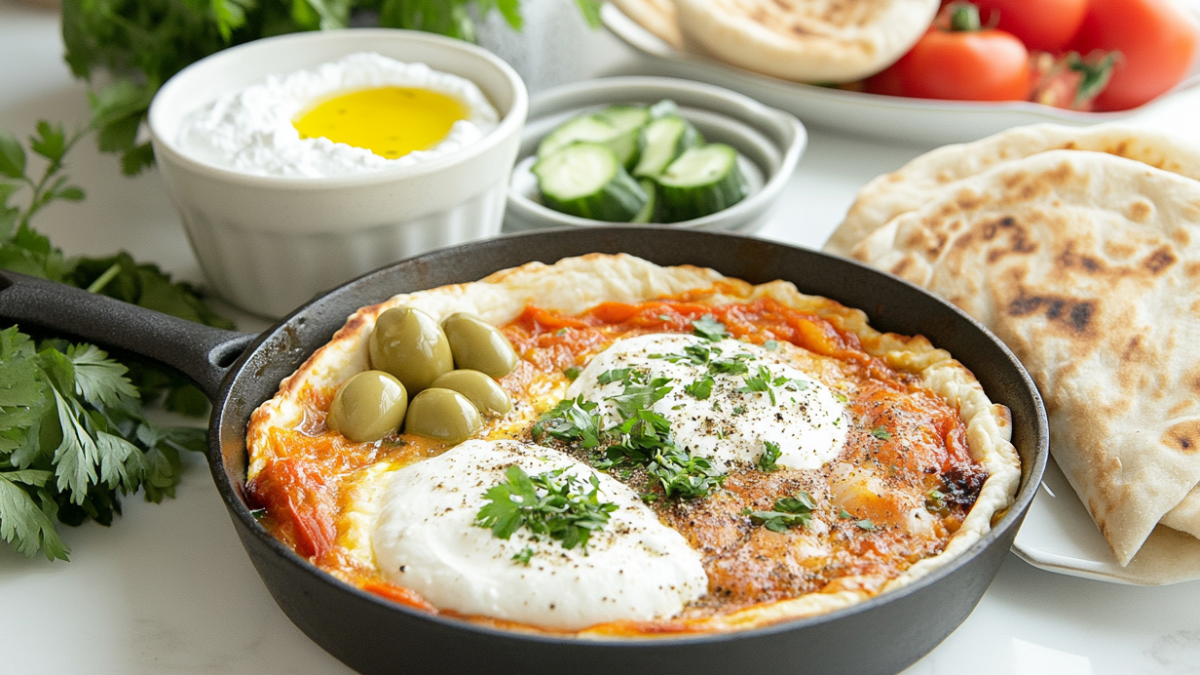The Ultimate Guide to Arabic Breakfast: A Culinary Journey
Breakfast is considered the most important meal of the day, and in Arabic culture, it holds even greater significance. An Arabic breakfast is a vibrant feast, a celebration of flavors, and a symbol of hospitality. From savory dishes like shakshuka to creamy delights such as labneh, this meal showcases the richness of Middle Eastern culinary traditions.
What Makes Arabic Breakfast Unique?
An Arabic breakfast is not just about food—it’s a cultural experience. Shared with family and friends, the meal often features communal dishes that everyone can enjoy together. Staples like fresh pita bread and an array of small plates, or mezze, make it a perfect example of Mediterranean dining. Explore the cultural significance of breakfast around the world.
To explore the diversity of Arabic breakfasts, let’s dive into some key components that define this meal. Dishes like ful medames and shakshuka are must-tries for anyone curious about Middle Eastern flavors. Discover the health benefits of the Mediterranean diet.
Key Components of an Arabic Breakfast
Here’s what you can expect on a traditional Arabic breakfast table:
Breads
- Pita bread: A soft, round flatbread that pairs with nearly every dish. Learn how to make authentic pita bread at home.
- Manakish: A Middle Eastern flatbread often topped with za’atar, cheese, or meat.
- Baghrir: Spongy pancakes known for their unique texture, often drizzled with honey or butter.
Dairy Products
- Labneh: A tangy, creamy yogurt cheese that is both nutritious and delicious.
- Nabulsi cheese: A brined, white cheese with a hint of saltiness.
Legume-Based Dishes
- Ful medames: Stewed fava beans mixed with olive oil, garlic, and lemon juice.
- Hummus: A chickpea and tahini dip that needs no introduction.
Egg Dishes
- Shakshuka: A hearty dish of poached eggs in a spiced tomato and bell pepper sauce.
- Mfarakeh: A comforting mix of scrambled eggs and potatoes.
Accompaniments
- Fresh vegetables: Tomatoes, cucumbers, and radishes.
- Olives and olive oil.
- Za’atar: A thyme-based spice blend that elevates any dish. What is za’atar and how to use it in cooking.
Regional Variations of Arabic Breakfast
Levantine Breakfast
- Known for its simplicity and freshness.
- Dishes like manakish, labneh, and fresh vegetables dominate the table.
Egyptian Breakfast
- Highlights ful medames and ta’ameya (Egyptian falafel).
- Often served with baladi bread and pickled vegetables.
Maghrebi Breakfast
- Features sweet options like baghrir and msemen (layered flatbread).
- Often includes honey, butter, and a hint of cinnamon.
How to Prepare a Traditional Arabic Breakfast
Creating your own Arabic breakfast is easier than you might think. Here are a few iconic recipes to get started:
Ful Medames
- Ingredients: Fava beans, garlic, lemon juice, olive oil, cumin.
- Preparation: Simmer beans until tender, mash lightly, and mix with spices and olive oil.
- Serving tip: Garnish with parsley and serve with warm pita bread.
Shakshuka
- Ingredients: Eggs, tomatoes, bell peppers, onions, garlic, spices.
- Preparation: Sauté vegetables, add spices, and crack eggs on top to poach.
- Serving tip: Pair with manakish for a heartier meal.
Manakish with Za’atar
- Ingredients: Flatbread dough, olive oil, za’atar mix.
- Preparation: Spread the za’atar mix over rolled dough and bake until golden.
- Serving tip: Best enjoyed fresh out of the oven with a side of labneh.
The Health Benefits of an Arabic Breakfast
An Arabic breakfast is not only delicious but also nutritious. It emphasizes:
- Balanced nutrition: High in proteins, healthy fats, and fiber.
- Fresh ingredients: Minimal use of processed foods.
- Heart-healthy options: Olive oil and legumes play a key role in promoting cardiovascular health.
FAQs About Arabic Breakfast
What is a typical Arabic breakfast?
A mix of bread, dairy, legumes, and fresh accompaniments like olives and vegetables.
Is Arabic breakfast vegetarian-friendly?
Yes, many dishes like hummus, labneh, and ful medames are vegetarian.
What bread is commonly served?
Pita bread, manakish, and baghrir are staples.
Conclusion
An Arabic breakfasts is more than a meal—it’s a celebration of Middle Eastern culture and hospitality. Whether you’re savoring the richness of shakshuka, the creaminess of labneh, or the simplicity of manakish, each dish tells a story. Why not bring the magic of an Arabic breakfasts to your table and share this timeless tradition with your loved ones?

